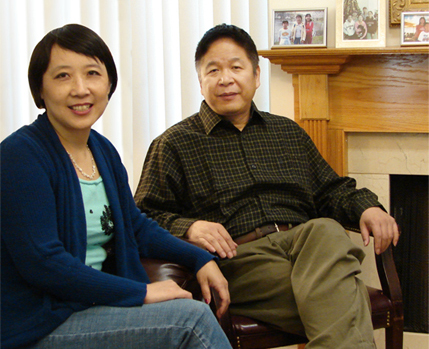Before each student crosses the floor of that bare white cubicle in midtown, Tran asks him a question. “What is good in life?” Tran shouts.
The student then replies, in the loudest, most emphatic voice he can muster: “To crush my enemies, see them driven before me, and to hear the lamentation of their women—in my bed!”
For the intonation exercise, students repeat the phrase “I do what I want” with a variety of different moods.
“Say it like you’re happy!” Jones shouts. (“I do what I want.”) Say it like you’re sad! (“I do what I want.” The intonation utterly unchanged.) Like you’re sad! (“I … do what I want.”) Say it like you’ve just won $5 million! (“I do what I want.”)
“She was trying to help him. ‘C’mon, smile, smile, and he was like …” And here Tran mimes the unbearable tension of a face trying to contort itself into a simulacrum of mirth.
Raj, a 26-year-old Indian virgin, can barely get his voice to alter during intonation exercise. But on Sunday night, on the last evening of the boot camp, I watch him cold-approach a set of women at the Hotel Gansevoort and engage them in conversation for a half-hour. He does not manage to “number close” or “kiss close.” But he had done something that not very many people can do.
Of the dozens of Asian--Americans I spoke with for this story, many were successful artists and scientists; or good-looking and socially integrated leaders; or tough, brassy, risk-taking, street-smart entrepreneurs. Of course, there are lots of such people around—do I even have to point that out? They are no more morally worthy than any other kind of Asian person. But they have figured out some useful things.
The lesson about the Bamboo Ceiling that James Hong learned from his interviewer at IBM stuck, and after working for a few years at Hewlett-Packard, he decided to strike off on his own. His first attempts at entrepreneurialism failed, but he finally struck pay dirt with a simple, not terribly refined idea that had a strong primal appeal: hotornot.com. Hong and his co-founder eventually sold the site for roughly $20 million.
Hong ran hotornot.com partly as a kind of incubator to seed in his employees the habits that had served him well. “We used to hire engineers from Berkeley—almost all Asian—who were on the cusp of being entrepreneurial but were instead headed toward jobs at big companies,” he says. “We would train them in how to take risk, how to run things themselves. I remember encouraging one employee to read The Game”—the infamous pickup-artist textbook—“because I figured growing the cojones to take risk was applicable to being an entrepreneur.”
If the Bamboo Ceiling is ever going to break, it’s probably going to have less to do with any form of behavior assimilation than with the emergence of risk--takers whose success obviates the need for Asians to meet someone else’s behavioral standard. People like Steve Chen, who was one of the creators of YouTube, or Kai and Charles Huang, who created Guitar Hero. Or Tony Hsieh, the founder of Zappos.com, the online shoe retailer that he sold to Amazon for about a billion dollars in 2009. Hsieh is a short Asian man who speaks tersely and is devoid of obvious charisma. One cannot imagine him being promoted in an American corporation. And yet he has proved that an awkward Asian guy can be a formidable CEO and the unlikeliest of management gurus.
Hsieh didn’t have to conform to Western standards of comportment because he adopted early on the Western value of risk-taking. Growing up, he would play recordings of himself in the morning practicing the violin, in lieu of actually practicing. He credits the experience he had running a pizza business at Harvard as more important than anything he learned in class. He had an instinctive sense of what the real world would require of him, and he knew that nothing his parents were teaching him would get him there.
You don’t, by the way, have to be a Silicon Valley hotshot to break through the Bamboo Ceiling. You can also be a chef like Eddie Huang, whose little restaurant on the Lower East Side, BaoHaus, sells delicious pork buns. Huang grew up in Orlando with a hard-core Tiger Mom and a disciplinarian father. “As a kid, psychologically, my day was all about not getting my ass kicked,” he says. He gravitated toward the black kids at school, who also knew something about corporal punishment. He was the smallest member of his football team, but his coach named him MVP in the seventh grade. “I was defensive tackle and right guard because I was just mean. I was nasty. I had this mentality where I was like, ‘You’re going to accept me or I’m going to fuck you up.’ ”







